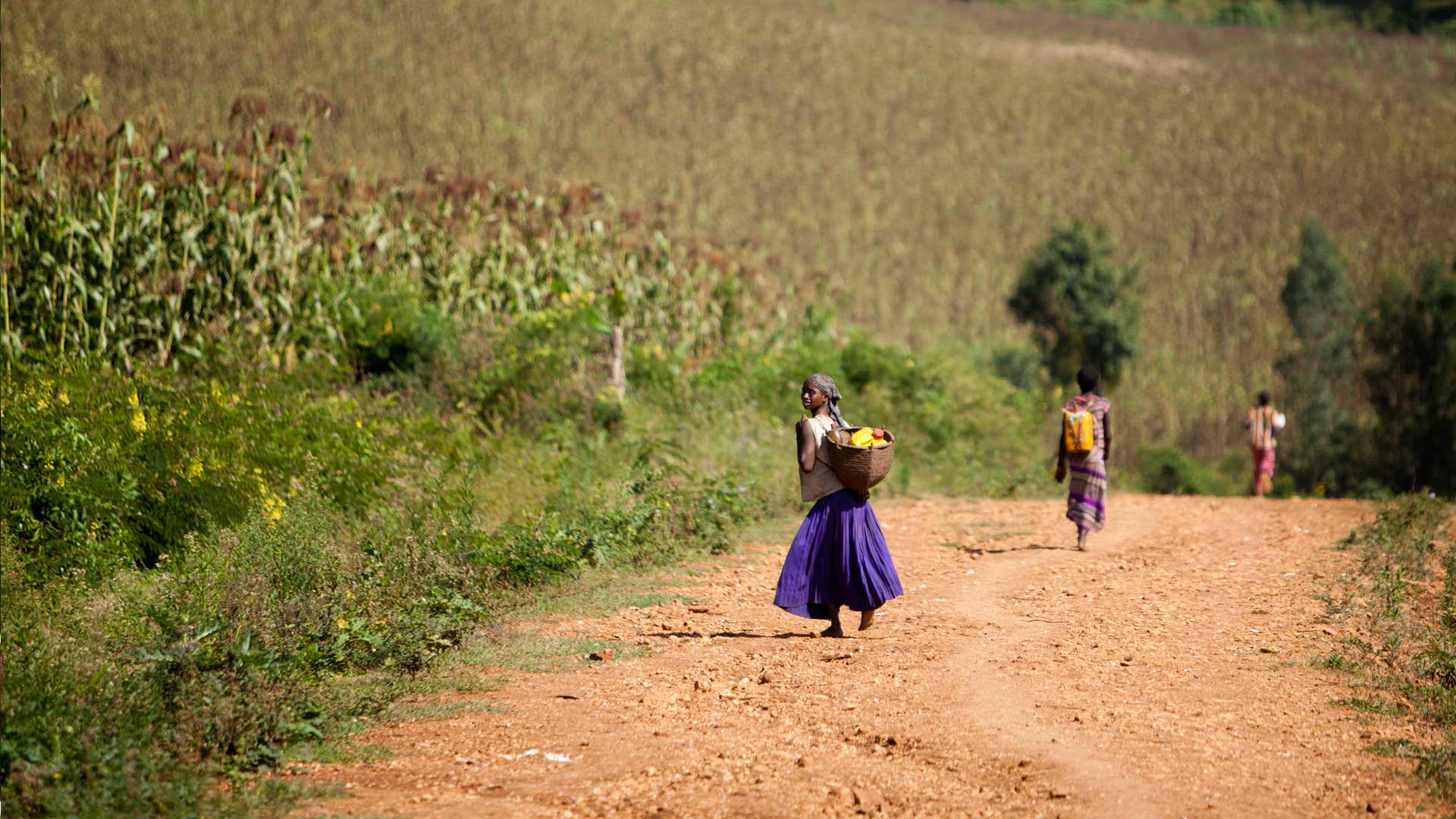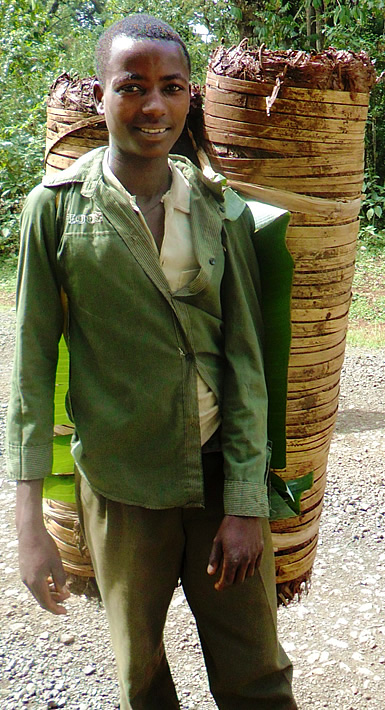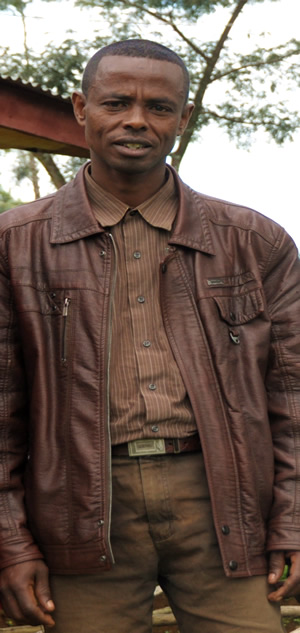
Centre for Sustainable and Resilient Communities (CSRC)
SWFLG and Economic Development of Communities
Improving livelihoods through developing new enterprises or enhancing existing ones is a central tool for achieving sustainable and resilient functional landscapes.
Livelihood and Enterprise Development
SWFLG projects impact positively on community livelihoods by developing market links, value chains, skills and products that support landscape functioning and improve people’s lives.
One example of the impact of SWFLG work is revealed by data from an independent impact assessment study by Conscientia PLC in 2013. This showed that the proportion of family income obtained through trade in forest products had increased by 24% due to the project activities.
Ato Girma’s Story
Girma Gedeno is Chairman of Shato PLC, an enterprise in Masha marketing honey. Development of this trading enterprise has had a big impact on the lives of it's members. Income generated has been used for schooling and healthcare. As Ato Girma says ’livelihoods are being changed’.
In the last seven years honey volumes purchased by the PLC have risen from 15,000 to 136,000 kilos. The NTFP- PFM project has supported the enterprise with training on beekeeping, marketing and quality control, enabling them to negotiate an increase in the price per kilo from ET Birr 3 to ET Birr 48. The PLC now has a strong relationship with an Addis-based honey export company with links to the EU and other markets. This year they will receive an up-front payment of ET Birr 500,000 for their honey.
Ato Girma and the community see an increased value in the forest for them. ‘We have realised that unless we manage forest resources on a sustainable basis livelihoods will not be continued. [We are] now striving to use it sustainably’.

Traditional beehive hanging in the forest, Sheka Zone SW Ethiopia. Photo: Indrias Getachew
Enhancing the Value Chain
The creation of a resilient and functional landscape depends on making sustainable land uses economically viable and attractive to communities. They need to be able to compete with other land management practices.
Honey is one important forest resource. Its value to communities can be increased through value chain development. This includes identifying high value markets for the extremely pure honey from this area and reducing the number of transactions in the chain from producer to consumer.
 Traditional beehives being carried into the forest. Photo: Maurice Tromp
Traditional beehives being carried into the forest. Photo: Maurice Tromp
Development of Community Institutions
A central component of maintaining ecosystem services is the development of institutions which can support appropriate land use and land management activities across the landscape, and co-ordinate community actions from which all will benefit.
Such institutions must be community-based and built from a common understanding of the land management issues faced in developing sustainable and resilient livelihoods.
Engaging Community Members
Ganiti Woreda Forest Management Association (FMA) grew out of the Non-Timber Forest Products (NTFP-PFM) project. Today the FMA has 47 gots that have forest management agreements with another 12 going through the process. “There has been a change of culture” says Tekalign Shadeno, FMA Chairman, “people don’t want to destroy the forest or have agriculture in it”.
SWFLG staff have worked alongside communities and government officials, all taking part in the participatory forest management process to establish forest agreements and management plans for community access to the forest. Says Tekalign “the government staff have been involved in PFM and better understand the process and communal ownership... and impact on sustainability of the forest”.
Semi-permanent wetlands are valuable assets for rural communities in South West Ethiopia. They can provide supplementary food in the dry season for farmers and when available on a larger scale, can create opportunities to produce cash crops, such as vegetables and sugar for domestic use and export.
Sound catchment management is needed to ensure sustainable use of these areas. This will enhance water storage and control extreme flooding so as to maximise benefits from the ecosystem services. Environmentally appropriate land use in wetlands is also needed to avoid land degradation which undermines ecosystem services.

Tekalign Shadeno, Chairman Ganiti Woreda Forest Management Association. Photo credit: Fiona Hesselden
Sustainable Wetlands – food production and livelihood support
Semi-permanent wetlands are valuable assets for rural communities in South West Ethiopia. They can provide supplementary food in the dry season for farmers and when available on a larger scale, can create opportunities to produce cash crops, such as vegetables and sugar for domestic use and export.
Sound catchment management is needed to ensure sustainable use of these areas. This will enhance water storage and control extreme flooding so as to maximise benefits from the ecosystem services. Environmentally appropriate land use in wetlands is also needed to avoid land degradation which undermines ecosystem services.
Supporting Local People
Involving all stakeholders is an important principle of SWFLG’s approach. Women are often marginalized and discriminated against. Working practices aim to ensure that their voices are heard and that they participate fully.
Involving Women
Birhane Geremew (pictured) is a member of the Ganiti Forest Management Association (FMA) General Assembly. She has been part of the PFM work since the beginning in 2008.
“When [forest] degradation and deforestation happen women are affected; if there is no forest [they] walk a long way to get firewood and water” says Birhane. The project has had a positive impact on Birhane’s life and that of other women “awareness and training have shown them, [women] they can participate and benefit like men”
In the last year the Reducing Emissions from Deforestation and Forest Degradation by Participatory Forest Management project (REPAFMA) has undertaken gender awareness training for community-based organisations. This has successfully increased the number of women attending PFM days.

Birhane Geremew, member of the Ganiti Forest Management Association. Photo credit: Indrias Getachew